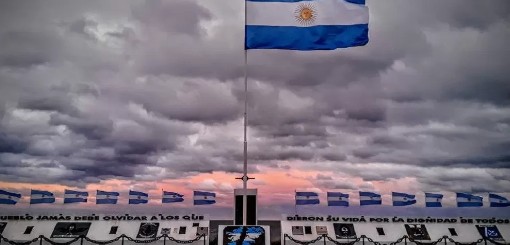
Today marks the 40th anniversary of the start of the Malvinas War, when Argentine troops landed in Puerto Argentino to recover the islands usurped by the United Kingdom in 1833.
Thus began a war that lasted just over two months and ended with the surrender of the Argentine forces.
This defeat led to the fall of the military dictatorship that had ruled the country since 1976 and paved the way for the restoration of democracy in 1983.
Since then, Argentina has been campaigning in all international forums for the resumption of dialogue with the United Kingdom over sovereignty over the archipelago in the South Atlantic.
It is worth recalling that UN Resolution 2065 recognises the existence of a dispute over the Malvinas and urges Buenos Aires and London to negotiate a solution.
The 1982 war left 649 Argentine soldiers dead.
More than 300 of them were victims of the sinking of the cruiser General Belgrano, torpedoed by a British submarine outside the exclusion zone.
As part of the 40th anniversary of the landing on the Islands, the traditional vigil of former combatants was held last night, to await the arrival of April 2.
Vigils are held all over the country, but the central one is in Río Grande, in the province of Tierra del Fuego, the jurisdiction to which the Malvinas Islands belong.
Rio Grande is also the closest point on the mainland to the archipelago, separated by a distance of 600 kilometres.
Last night's ceremony also saw a reunion of veterans after two years of restrictions and virtual activities due to the coronavirus pandemic.
A crowd attended the commemoration in the far south of Argentina, on the shores of the Argentine sea, on a freezing night with temperatures hovering around 3 degrees Celsius.
Representing the national government in Rio Grande were the Ministers of Defence, Jorge Taiana, and Health, Carla Vizzotti.
Also in attendance were the governor of Tierra del Fuego, Gustavo Melella, and his counterpart from Jujuy, Gerardo Morales, as well as legislators and leaders from both the ruling party and the opposition.
The activity began at 20:00 with a mass, followed by the entrance of 40 torches, one for each year that has passed since the war, in homage to the fallen in combat.
Shortly before zero o'clock on 2 April, the Argentine flag was lowered and flown at the Río Grande Heroes Monument for a year.
At midnight, in one of the most solemn moments of the commemoration, a new flag was raised, which will remain at the site until the next anniversary of the war, in 2023.
The national flag was raised while visibly touched veterans watched, some of them in tears, while everyone sang the patriotic song "High in the Sky".
"It is the flag of my homeland, born of the sun, given to me by God", say the lyrics of this piece from the opera "Aurora", by Argentine composer Héctor Panizza, premiered in 1908.
Once the flag had reached the top of the mast, the participants of the vigil sang the Argentine National Anthem.
In this context, the head of the Río Grande veterans' centre, Raúl Villafañe, told the Télam news agency: "after the pandemic, people needed the vigil and for us to get together again".
Throughout the night, the public passed through the Dignity Tent, a space where photographs, videos and objects related to the war are exhibited.
In addition, attendees were able to meet veterans and hear their life stories, their memories of the conflict and of their comrades who fell 40 years ago.
Another of the ex-combatants who came to Río Grande was Aníbal Espósito, who took part in Operation Rosario, the code name for the landing in Puerto Argentino on 2 April 1982.
Espósito confessed to the media: "It's hard to stand in front of the monument", that has one of the amphibious vehicles he himself drove four decades ago and which was shot at by the British.
This military operation was recreated in a simulation as part of the vigil.
During the vigil, Minister Taiana told the state news agency Télam: "time has passed in these 40 years, but neither the feeling, nor the conviction, nor the emotion has diminished".






